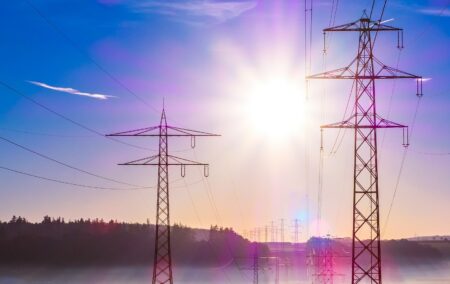Every crisis has a history and beginning. For Eskom, South Africa’s monopoly energy provider, the crisis began in 1998. This was when a government White Paper on Energy forewarned that the power utility faced potential collapse if its infrastructure was not properly maintained.
This White Paper also proposed for the first time what President Cyril Ramaphosa announced in his 2019 State of the Nation Address – the unbundling of Eskom into three wholly owned entities: Generation, Transmission, and Distribution.
More importantly, it proposed that as part of the unbundling process, there was a need to guarantee third-party access, sell at least 50% of Eskom’s generation capacity, and introduce competition through a multi-market model which would allow small and large energy generators into the energy space.
Prophetic
However, instead of implementing the strategies contained in this prophetic document, the government would later succumb to pressure primarily from its alliance partners in the Tripartite Alliance and abandon this economically sound and viable policy proposal. Fast forward to April 2008, and Eskom implemented its first load shedding schedule, as its supply could not keep up with the country’s electricity demand.
Over the years, several alternatives to the country’s energy crisis have been put on the table, including the long abandoned unbundling process which was opposed by organised labour in the early 2000s. True to their pseudo-revolutionary character, the “socialists/communists” of the Economic Freedom Fighters (EFF) and the South African Communist Party (SACP) have recently renewed their vows to “resist every attempt by government to privatise Eskom”.
For the EFF, the solution to the current Eskom challenges lies in sacking the entire board which is led by an “incompetent white man”. (More on this later). While for Thulas Nxesi – Deputy National Chairperson of the SACP and Minister of Labour – the state must step in and bail out Eskom whenever it is in financial crisis. To quote him verbatim:
“I am not a proponent of privatisation of key state assets,” … If you privatise electricity, you can forget about the majority of people having access to electricity — it is going to be very expensive for them. That’s why government steps in when there is market failure.”
This then begs a number of questions. Firstly, how has state ownership of Eskom benefited the poor?
Solomonic wisdom
It does not require the wisdom of Solomon to see that Minister Nxesi’s startling assertion runs against available information. The reality of the matter is that the vast majority of South Africans could not care less about who or what owns the power utility. Their primary concern, I hasten to conclude, is to have a reliable energy provider.
That said, Minister Nxesi’s concern about access to electricity for the poor seems to be more imagined than real because, as matters currently stand, the poor do not have access to reliable electricity, as a result of Eskom’s persistent blackouts. However, let us assume for argument’s sake that Eskom were to be privatised, resulting in high electricity tariffs. Minister Nxesi’s caring and benevolent government could still levy taxes on the new private energy provider and use the collected revenue to subsidise the poor. Alas, he has probably not thought about the matter to this extent. His is an ideological argument completely divorced from reality and devoid of even reasonable and viable solutions.
Dogmatic
Be that as it may, it will be remiss of this writer to dismiss the honourable Minister and his socialist camp as simply dogmatic. After all, they are part of the South African tax base, so they have as much right to oppose the privatisation of Eskom as those who are in favour of it. Theirs is a pushback campaign – they will not forgo control of Eskom without a fight.
It is very probable that they will mobilise their constituency and head to the picket line. This is their silver bullet against reason in the event of failing negations. And history is littered with examples of the detrimental effects of the so-called “national shutdowns”, at least in economic terms. So perhaps what is required is a middle-of-the-road or give-and-take approach to this Eskom issue: Privatise Eskom, levy taxes, and subsidise the poor!
We can and should settle for this, at least in the short-term for the sake of the country’s progress.
This brings us to our second question: can sacking the entire current Eskom board ameliorate the power utility’s standing?
The EFF has attributed Eskom’s financial and structural problems to a collective of less than 10 people – the Eskom board led by the “the incompetent” André de Ruyter. This narrow view has it that, if the Eskom board is sacked and replaced with a competent one, Eskom’s challenges will suddenly dissipate. It is very difficult to imagine how the new board called forth by the EFF will suddenly find a solution to Eskom’s nearly R500 billion debt, and maintain an infrastructure that has been neglected for almost 3 decades.
The current Eskom board may be part of the problem – it is common cause that the board is expected to guide the Eskom management without having an engineer or chartered accountant sitting on it. That notwithstanding, it is doubtful whether sacking the entire board will go a long way in ameliorating the utility’s inherent challenges. What South Africa requires is more competition in the energy sector – Eskom’s monopoly must be broken.
The views of the writer are not necessarily the views of the Daily Friend or the IRR
If you like what you have just read, support the Daily Friend

